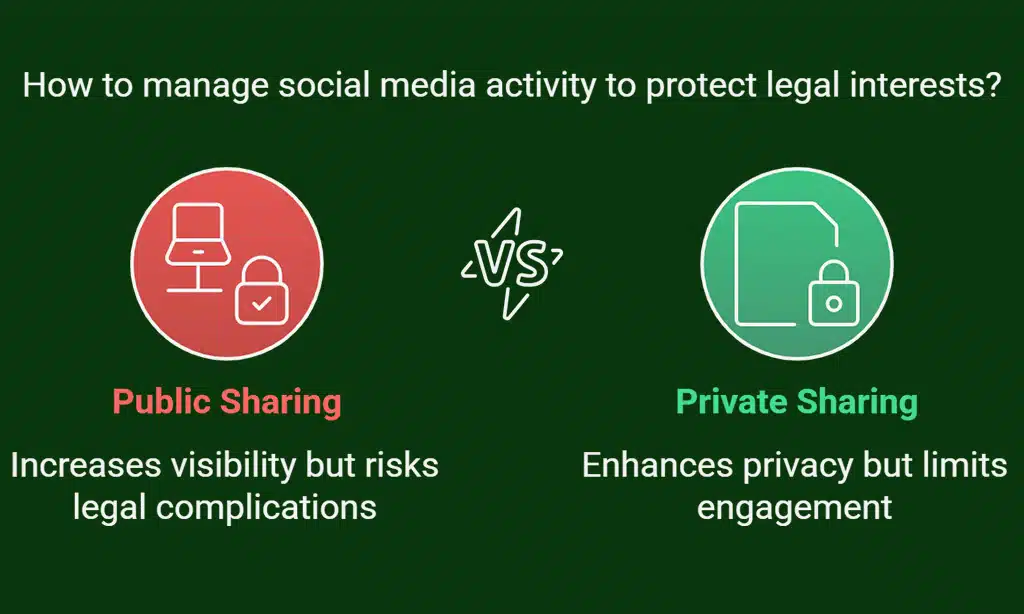Being wrongfully accused of a crime can be an overwhelming and life-altering experience. The consequences of false accusations can affect your reputation, career, and personal life. In such situations, taking immediate and well-informed steps can make a significant difference in the outcome of your case.
This guide provides a comprehensive breakdown of the 10 steps to take if you’re wrongfully accused of a crime, ensuring you protect your rights and navigate the legal system effectively.
1. Stay Calm and Do Not Panic
The initial shock of being accused of a crime can lead to fear, anxiety, and anger. However, reacting emotionally can worsen your situation. It is essential to remain calm and think strategically. Many wrongful accusations arise from misunderstandings, mistaken identity, or false allegations. A composed response will prevent additional complications and allow you to make rational decisions.
Key Actions to Take:
| Action | Why It Matters |
| Remain composed | Prevents rash actions that could harm your case |
| Avoid discussing the case | Ensures you do not say anything incriminating |
| Stay focused | Helps you concentrate on your defense strategy |
2. Understand the Accusation Against You
Before responding to any allegations, it is crucial to understand the charges. Ignorance of the exact nature of the accusation can lead to mistakes in your defense. Different crimes carry different legal consequences, so understanding the severity of the charges is essential to determine your legal options.
Steps to Follow:
| Step | Importance |
| Obtain legal documents | Ensures clarity on what you are being accused of |
| Identify inconsistencies | Helps in challenging false allegations |
| Understand possible penalties | Prepares you for potential legal consequences |
3. Hire an Experienced Criminal Defense Attorney
Legal representation is your strongest shield in wrongful accusations. A skilled criminal defense attorney will help you navigate complex legal procedures, protect your rights, and formulate an effective defense strategy. Studies show that individuals with legal representation have a significantly higher chance of a favorable outcome in criminal cases.
What a Good Attorney Will Do:
| Task | Benefit |
| Analyze evidence | Identifies weaknesses in the prosecution’s case |
| Advise on legal strategy | Helps you make informed decisions |
| Represent you in court | Ensures professional defense presentation |
4. Exercise Your Right to Remain Silent
Under the Fifth Amendment, you have the right to remain silent and avoid self-incrimination. Anything you say can and will be used against you in a court of law. Many wrongful convictions have resulted from individuals providing statements without legal counsel.
Guidelines for Staying Silent:
| Do | Don’t |
| Politely decline to speak | Volunteer unnecessary details |
| Request a lawyer immediately | Assume innocence will protect you |
| Wait for legal advice | Answer questions without understanding implications |
5. Gather and Preserve Evidence
To build a strong defense, collect evidence that proves your innocence. Proper documentation and corroborating proof can be the key to exoneration. Surveillance footage, digital communications, and witness testimonies are valuable in dismantling false accusations.
Key Evidence to Collect:
| Type of Evidence | Importance |
| Emails & messages | Establishes timeline and context |
| Witness testimonies | Supports your version of events |
| Video recordings | Provides visual proof of innocence |
6. Avoid Contact with the Accuser
Communicating with the accuser can be detrimental to your case. Even innocent interactions can be misconstrued, and any conversation may be manipulated to strengthen the case against you.
Safe Practices:
| Do | Don’t |
| Maintain distance | Confront the accuser |
| Let your lawyer handle communication | Respond to social media messages |
| Keep records of interactions | Make threats or retaliatory statements |
7. Stay Off Social Media
Social media activity can be used as evidence in court, often having a significant impact on legal proceedings. Many cases have been negatively affected by posts being taken out of context, used to question credibility, or misinterpreted by prosecutors. Even deleted posts can be recovered and presented as evidence. Therefore, it is crucial to be mindful of what you share online, as even seemingly innocent interactions can be twisted to support an unfavorable narrative.
Social Media Safety:
| Action | Reason |
| Avoid posting about your case | Prevents self-incrimination |
| Set profiles to private | Limits information access |
| Refrain from discussing legal matters | Keeps proceedings confidential |
8. Cooperate with Your Legal Team and Follow Their Advice
Your attorney is your greatest ally, providing legal advice tailored to your specific situation and best interests. They will assess the evidence, identify weaknesses in the prosecution’s case, and craft a strategic defense. By closely following their guidance, you can avoid missteps, strengthen your position, and ensure that you comply with all legal procedures. Ignoring their advice can lead to costly mistakes, making it harder to prove your innocence and achieve a favorable outcome.
Ways to Cooperate:
| Action | Why It Helps |
| Disclose all facts | Helps build the strongest defense |
| Follow court guidelines | Shows compliance with legal procedures |
| Attend all hearings | Demonstrates responsibility and credibility |
9. Prepare for Court Proceedings
If your case goes to trial, preparation is key. Your appearance, conduct, and testimony can significantly influence the outcome. Proper courtroom etiquette, including maintaining eye contact, dressing appropriately, and speaking clearly, can leave a positive impression on the judge and jury. Additionally, being well-prepared with your attorney by rehearsing your statements and understanding possible cross-examinations can help you remain confident and composed under pressure.
Courtroom Preparation:
| Step | Importance |
| Dress professionally | Creates a positive impression |
| Review testimony with attorney | Ensures consistency and accuracy |
| Remain respectful | Demonstrates credibility and good character |
10. Consider Civil Action for Defamation
If you are cleared of charges, you may have the right to sue for defamation. False accusations can damage your reputation, career, and personal relationships, leading to financial and emotional distress. Legal action may provide compensation for lost wages, emotional suffering, and damage to your credibility. Additionally, pursuing a defamation case can help deter future false allegations and restore your professional and social standing.
Defamation Case Considerations:
| Factor | Explanation |
| Loss of employment | Can claim damages for financial loss |
| Emotional distress | Can seek compensation for mental suffering |
| Reputational harm | Legal recourse to restore credibility |
Wrap Up
Facing wrongful accusations can be daunting, but knowing the 10 steps to take if you’re wrongfully accused of a crime can help you safeguard your rights and ensure justice prevails.
Acting promptly, securing a competent defense attorney, and maintaining a composed demeanor can significantly impact the outcome of your case. If you ever find yourself in such a situation, remember that the legal system provides protections for the accused, and with the right approach, you can fight back against false allegations.
By following these steps and being proactive in your defense, you increase the chances of clearing your name and moving forward with your life.






































